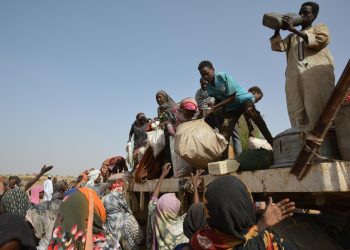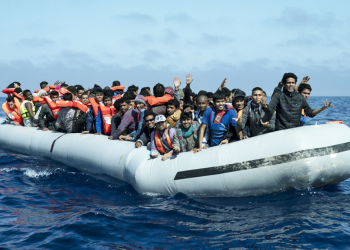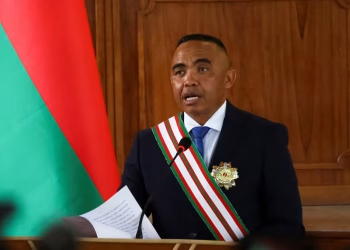Port Sudan Faces Water and Power Crisis After Drone Attacks
Port Sudan, once a rare safe zone in war-torn Sudan, has plunged into chaos after six days of relentless drone strikes by the Rapid Support Forces (RSF). Once a hub for humanitarian aid, the Red Sea city is now grappling with severe water shortages, fuel scarcities, and widespread power outages.
Water Prices Soar as Fuel Depots Burn
The destruction of three major fuel depots has crippled access to diesel, which powers the groundwater pumps. Without it, clean water has become a luxury. Local resident Mutasim, who fled from Omdurman, shared that the price for a day’s supply of water has jumped from 2,000 to 10,000 Sudanese pounds in just one week.
“I don’t know how we’ll afford water for cooking or bathing,” he told the BBC, explaining he supports a family of eight through market trading. His struggles are shared by many in a city that had previously offered hope.
Blackouts and Fuel Lines Cripple Daily Life
Markets remain open, but residents queue for hours at petrol stations. The two-week-long power outage has only worsened with the attacks, making it unbearable for many—especially the elderly—who rely on fans to withstand stifling heat and humidity at night.
“My 70-year-old aunt can’t sleep at night,” said Mutasim. “There’s no electricity, no air, and the fear keeps us awake.”
Refugees Trapped Again
Hawa Mustafa, a teacher from Darfur, has lived in a displacement camp in Port Sudan with her four children for two years. She says the drone attacks have brought the war right back to their doorstep.
“We had started to feel safe again,” she said. “But the noise of drones and anti-aircraft fire reminded me of the first days of war.”
Separated from her husband, who is trapped in unsafe territory, Hawa now questions her future. “We thought about moving abroad, but now that dream feels impossible.”
Humanitarian Lifeline Under Threat
Port Sudan has been the primary entry point for food and medical aid, thanks to its port and the country’s only functional international airport. The World Food Programme (WFP) used it to deliver over 20,000 metric tonnes of food in March alone.
But organizations like the Norwegian Refugee Council fear the attacks could severely disrupt aid flows, deepening what’s already one of the world’s worst humanitarian crises. “This will limit life-saving operations,” said country director Shashwat Saraf, adding that finding alternative routes will be difficult.
From Hope to Desperation
Just weeks ago, Port Sudan was a place where people went to the beach, watched football in cafés, and tried to rebuild their lives. Today, the city is quiet, fearful, and in darkness. Nightfall no longer brings rest—it brings uncertainty.
For thousands of displaced families and aid workers, the once-reliable refuge of Port Sudan now hangs in a fragile balance, its future uncertain in a war with no clear end.













